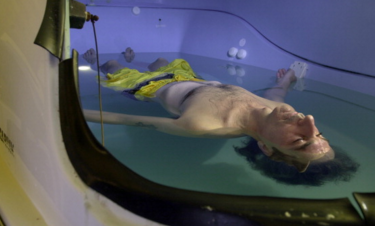I have a secret fear that we’re losing our ability to think. I’m afraid our memories are deteriorating at rapid speed.
For instance, filming a scripted video the other day, I could barely keep two sentences in my mind before I had to pause to look back at my notes.
Give it a try. Try to repeat this essay word-for-word, without looking, after studying it for 10 or less seconds. If you’re like me, impossible. If you’re like me, you’re afraid that out of all your daily activities, some are co-opting your ability to think critically. Maybe this is simply the ready-made excuse I have for my inability to recall a theory I learned the day before or my struggle, absurdly, to remember what that core principle of that thing I’ve been studying all semester is.
Whatever my mental failings say about myself, I often find it’s too cluttered and busy for me to even focus on what I’m reading. I’m sure this isn’t just an arbitrary effect of living. Instead, perhaps prematurely, I blame technology for its ubiquitous and aggressive role in my life. The infallible “Google-ability” of everything has replaced my need to actually presently know anything. The siren-call of cell phone alerts has me on edge constantly. The daily master/slave dynamic between me and my cell phone is often at odds with how such a relationship should normally unfold. In fact, constantly available entertainment is destroying our ability to be bored and, as a result, mindful.
If you’re like me, it looks like there’s little hope come Finals Week. When I sit down to take that test on Dec. 14, I’ll likely be too wired and anxious to remember little more than the surface info of all the content I’d spent the last few weeks studying.
What can you do if you’re brain is too distracted to stay mindful or present? I recommend you consider the benefits of the sensory deprivation tank.
In theory such an apparatus is fear-inducing. Otherwise known as “float tanks,” they look like small domed or pyramidal opaque terrariums filled with roughly ten inches of very salty water. The point is to undress, enter the pitch black, deaf-level silence and float on your back for any number of predetermined minutes or, for the iron-willed, hours.
Such an experience — the apparent absence of all senses reducing one to a disembodied consciousness — is hard to imagine given the sense-saturated overload of quintessential 21st century life. To me, one who has tried and failed dramatically to meditate “mindfully,” such a forced zero-distraction experience sounds perfect.
If you haven’t heard of float tanks, you’re not alone, but they’re slowly filling up the country. In Portland there’s an annual floating conference — imagine Comic Con, but replace costumed enthusiasts with über-relaxed mindfulness gurus. Though this extreme might not fit for everyone, I think there’s definitely something to say for the sort of people who consistently self-reflect.
So as you prepare for finals or as you notice the way you think (or don’t think), consider the benefits of a system that’s trained solely on the mind. If only for a little while, disconnect. I suggest you give sensory deprivation a try.


